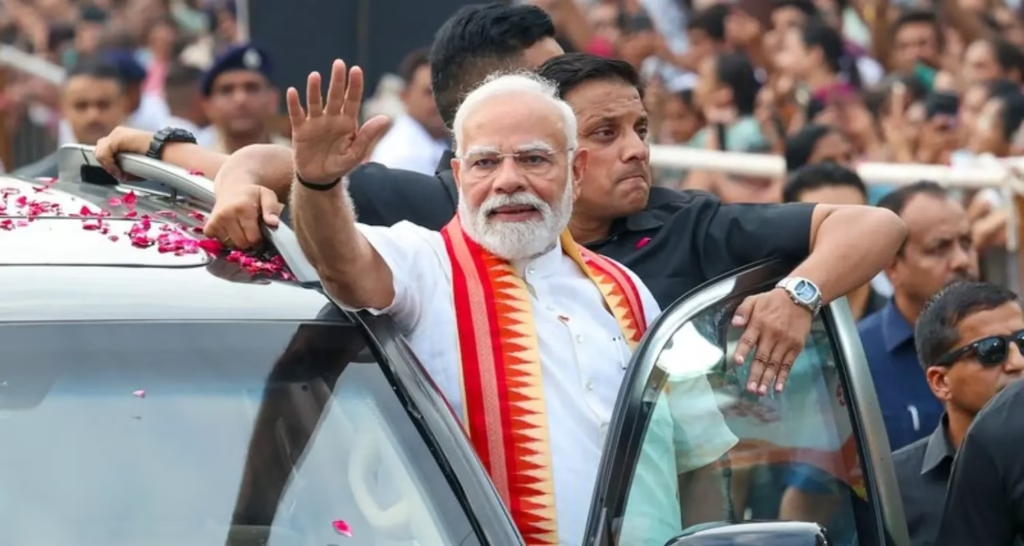Prime Minister Narendra Modi today marked a major milestone in India’s clean mobility journey by flagging off the Made in India battery electric vehicles (BEVs) ‘E-Vitara’ from Suzuki Motor’s Hansalpur plant in Gujarat. These vehicles will be exported to over 100 countries, including key markets such as Europe and Japan.
The Prime Minister, who is on a two-day visit to Gujarat, also toured the facility and exhibition at the Hansalpur plant before the official roll-out.
Strengthening India’s Battery Ecosystem
Alongside the EV launch, PM Modi also unveiled the next phase of India’s battery ecosystem with the start of local production of hybrid battery electrodes at the TDS Lithium-Ion Battery Plant in Hansalpur.
The plant, a joint venture between Toshiba, Denso and Suzuki, will ensure that over 80% of the battery’s value is manufactured within India. Officials highlighted that this green energy plant is expected to play a key role in boosting domestic production, promoting clean energy innovation, and expanding India’s green manufacturing footprint.
A Step Forward for ‘Make in India’
In a post shared on social media, the Prime Minister called it a “special day” for India’s pursuit of self-reliance and its rise as a hub for green mobility.
Speaking at the inauguration, he said the initiative adds a new chapter to Make in India and strengthens the vision of ‘Make in India’ and ‘Make for the World’. He also noted that this development gives a fresh dimension to the partnership between India and Japan.
India’s Advantage in Global Manufacturing
PM Modi stressed that India’s democracy, its young population, and its skilled workforce give it a unique advantage in the global market. “It creates a win-win situation for every partner of India,” he said.
The Prime Minister also pointed to companies like Maruti Suzuki, which have become global ambassadors of the Make in India initiative, showcasing India’s capability to build world-class products.


